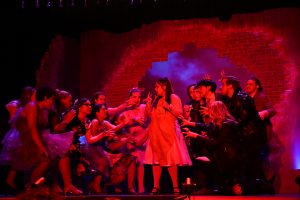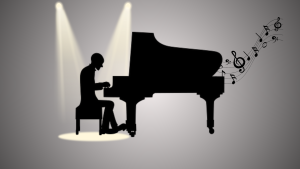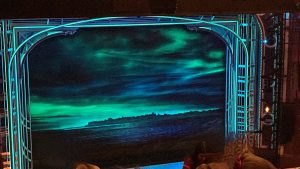This week, Central Florida is coming together as a community to “explore history and the importance of respect, diversity and speaking out against injustice”. November 9-10th 2013 marks the 75th Anniversary of Kristallnacht, the beginning of Hitler’s Final Solution. Through several arts and cultural organizations, the Central Florida community has joined together to declare, “Never Again!” and emphasize the importance of awareness and speaking out against discrimination. It is highly important to continue to teach each generation about these events and to continue to learn about the past in order to guide the future. Art, music, and other forms of culture are vessels in which we can use the past for knowledge for future progress and to prevent devastating events from occurring again.
The Bach Festival Society of Winter Park participated in this unique collaboration by performing Sir Michael Tippett’s A Child of Our Time to commemorate Kristallnach’s 75th Anniversary. The Bach Festival Society of Winter Park’s mission is to “inspire the human spirit through great classical music” and they exceeded expectations with this performance. A Child of Our Time is a great oratorio – a large-scale musical work of orchestra and voices that has a narrative theme. The performance was meant to be in honor of oppressed people across the globe, a meaningful message that fit in with the greater thematic context of commemorating the Anniversary of Kristallnacht.
The music was powerful in itself and the musicians and vocalists made the entire performance even more monumental. It was indeed inspiring to experience the performance and A Child of Our Time’s powerful message of hope and optimism against war and oppression. Although it narratives a tale of poverty and discrimination, the overall work embodies the significant themes of protest against the oppressed and optimism for the future.
Although one might think that A Child of Our Time would be slow and somber given the context in which it was composed, it was actually as uplifting as its underlying positive themes. The tempo was varying, switching from slow, pensive tempos to fast, lively ones. The vocalists and chorus were lovely and complemented the instrumental part of the performance nicely.
My only criticism is that the chorus as a whole was a little shaky and out of sync at the very beginning of the performance, but that is a matter of personal opinion, and perhaps my ears are not as fine-tuned to classical music as I would like to think. It simply seemed as if some of the singers wanted to be there more than others, and that reflected in the overall harmony of their voices. Other than that, the vocalists and musicians worked dynamically well together to produce a commendable rendition of Tippet’s masterpiece.







Be First to Comment